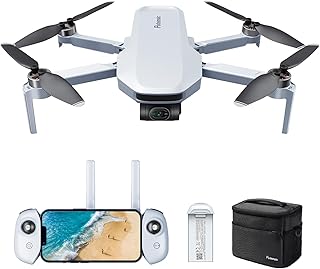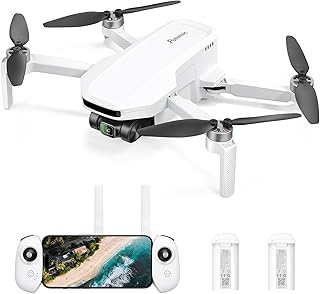Potensic Drone: Safety Features and Considerations
Potensic drones offer various features to enhance safety and user experience. However, it's essential to understand the limitations and prioritize responsible operation to ensure a safe and enjoyable flight experience.
Safety Features:
* GPS Positioning: Most Potensic drones utilize GPS for accurate positioning and flight path control. This feature enables functions like Return to Home (RTH), which automatically guides the drone back to the starting point when signal is lost or the battery is low.
* Obstacle Avoidance: Some Potensic drones include sensors to detect obstacles and adjust their flight path. These features vary in effectiveness and can be supplemented with visual observation and cautious flying practices.
* Flight Limits: Many Potensic drones have built-in altitude and range limits to prevent excessive altitude gain or flying beyond the pilot's visual line of sight (VLOS). These limitations enhance safety by preventing potential hazards and accidents.
* Low Battery Warning: Drones like the Potensic T25, T35, and T45 provide a low battery warning to alert the user when the battery level is running low. This allows for a controlled landing before the drone loses power.
Safety Considerations:
* VLOS (Visual Line of Sight): It's crucial to maintain visual contact with the drone at all times during operation. Avoid flying in conditions that obstruct visibility, like dense fog, rain, or darkness.
* No Fly Zones: Be aware of designated no-fly zones near airports, critical infrastructure, or sensitive locations. Consult the FAA website or drone-specific apps for updated no-fly zone information.
* Weather Conditions: Avoid flying in strong winds, rain, or other adverse weather conditions. These conditions can compromise stability and control, leading to accidents.
* Battery Life: Be mindful of the drone's battery life and plan flights accordingly. Landing with sufficient battery reserve is essential for safe operation.
* Propeller Safety: Keep fingers and objects away from the rotating propellers. They can cause serious injury.
* Drone Regulations: Familiarize yourself with local drone regulations and licensing requirements before flying. These regulations vary by region and country.
Other Important Factors:
* Drone Model Specifics: Review the safety features and limitations specific to the Potensic drone model you're considering.
* User Manual: Always read and understand the user manual for your drone, which includes detailed information about safety procedures and operations.
* Proper Training: Consider seeking training and certification from a reputable drone operator or educational program.
* Insurance: Check if your homeowner's or renter's insurance policy covers drone operation. Consider additional drone-specific insurance for enhanced protection.
Remember:
Responsible drone operation is essential for the safety of yourself, others, and the environment. By taking the necessary precautions, you can ensure a safe and enjoyable flying experience with your Potensic drone.


